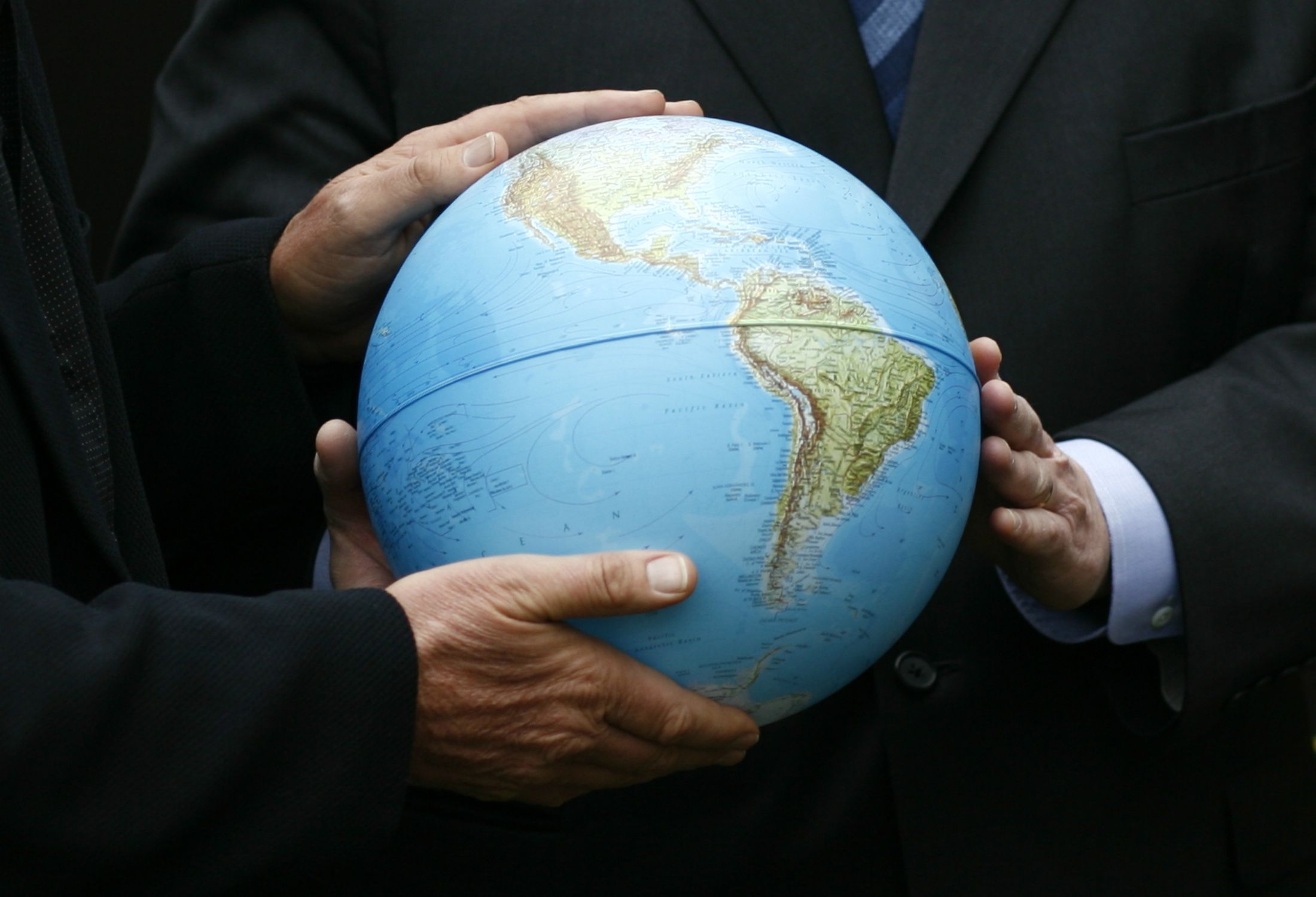
Climate change models that are more severe are likely more accurate, according to a study published on Wednesday in Nature. The study discovered that predictions with greater amounts of global warming were the ones that best aligned with the current climate.
The research was conducted by Patrick Brown and Ken Caldeira, of the Carnegie Institution for Science. Their study indicates that if the world's emissions of greenhouse gases continue on a business-as-usual scenario, there is a 93 percent chance that global temperatures will rise 4 degrees Celsius (7.2 degrees Fahrenheit) by the end of the century. That's much more drastic than earlier models predicted. Previous estimates gave that scenario a 62 percent chance.
Climatologists use statistical models to predict how much temperatures will rise in accordance with increases in carbon dioxide and other greenhouse gases in the atmosphere. Currently, the range of temperature increases by the end of the century under a business-as-usual scenario—a scenario in which no significant changes are made to curb emissions—is 3.2 to 5.9 degrees Celsius (5.8 to 10.6 degrees Fahrenheit) over preindustrial levels. These estimates are based on a model in which greenhouse gas emissions continue to increase throughout the rest of the century.
There is a wide variation of climate models, and they often calculate different results, which results in confusion about which models are most accurate. Brown and Caldeira conducted this study to determine whether the lower or higher range (3.2 or 5.9 degrees Celsius) is more accurate. They compared model projections to observations of current atmospheric conditions. The findings revealed that the lower range could be scrapped. Warming is about 0.5 degrees Celsius (0.9 degrees Fahrenheit) higher than what the original models suggested.
Clouds often complicate our understanding of how much temperatures will rise—which makes understanding climate change difficult. Clouds cause something called the "cooling effect"—they reflect the Sun's energy (and thereby heat) back into space. Different climate models disagree on their predictions about how cloud coverage could change as a result of greenhouse gases. Some models find that the cooling effect will increase, while others suggest it will decrease.
But why is this important for us? Because how clouds and the resulting cooling effect change is a factor in predicting how high temperatures will rise. "Clouds are just really complicated," Brown told Newsweek. Models that best recreate current atmospheric conditions are ones that predict a reduction in cloud cooling—which also are the models that predict the highest temperature increases, according to the study.

Arguments in front of Congress or in the public debate often point out that climate models have problems, said Brown, a postdoctoral research scientist. The new study confirms those variances, but also reveals that the most accurate models predict the most global warming.
The Paris climate agreement set a goal to keep temperatures from rising at least 2 degrees Celsius, with a push toward no more than a 1.5-degree increase by the end of the century. Last month, the United Nations predicted the world was on track for a 3-degree increase by the end of the century.
Brown's study reveals that we may be underestimating how much temperatures will rise if substantial action to reduce greenhouse gas emissions isn't taken.
The difficulty of modeling climate change has led to people taking future warming less seriously, said Brown. But as he sees it, that uncertainty should fuel more concern, especially because models that produce the most warming appear to be the most accurate—per his most recent study. "And so it really makes much more sense to say 'we need to take global warming more seriously because a lot of models aren't doing so great,' rather than the opposite."
Brown said that using assumptions about future greenhouse gas trajectories to estimate temperature changes is necessary since predicting how nations will change those emissions is difficult. "It's just so hard to predict the future of humanity," says Brown.
Uncommon Knowledge
Newsweek is committed to challenging conventional wisdom and finding connections in the search for common ground.
Newsweek is committed to challenging conventional wisdom and finding connections in the search for common ground.
About the writer
Sydney Pereira is a science writer, focusing on the environment and climate. You can reach her at s.pereira@newsweekgroup.com.
To read how Newsweek uses AI as a newsroom tool, Click here.








